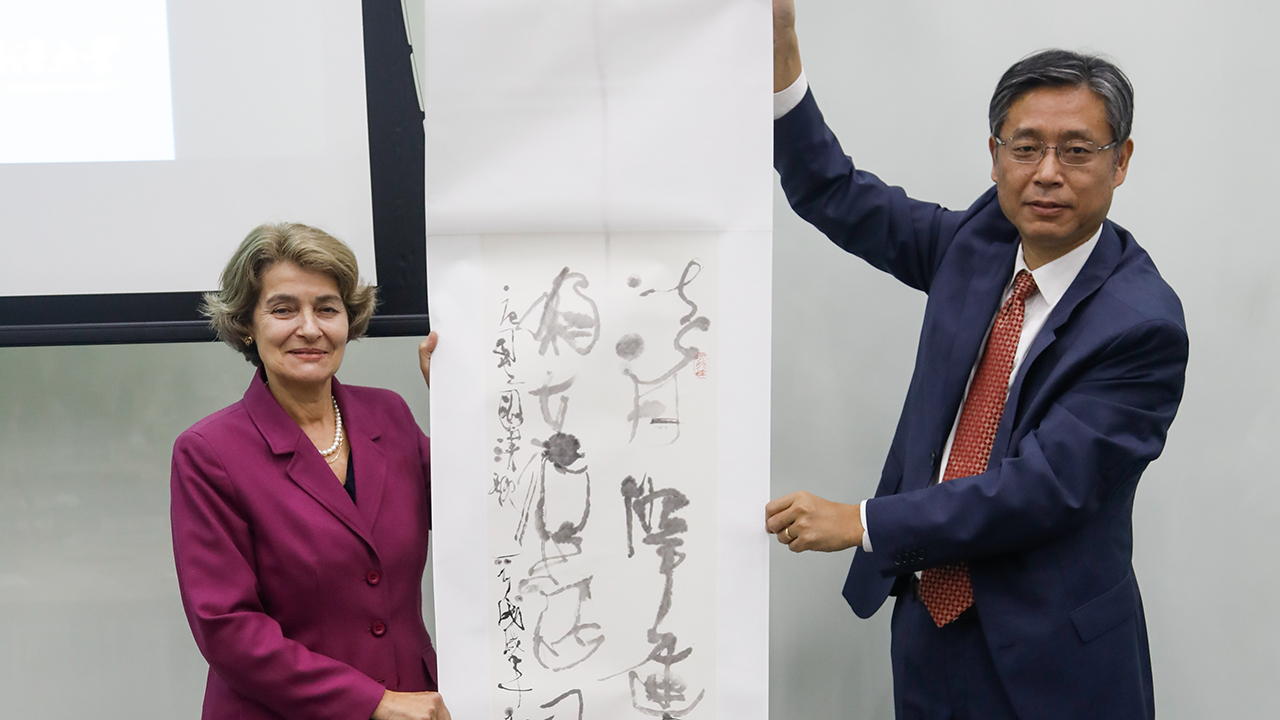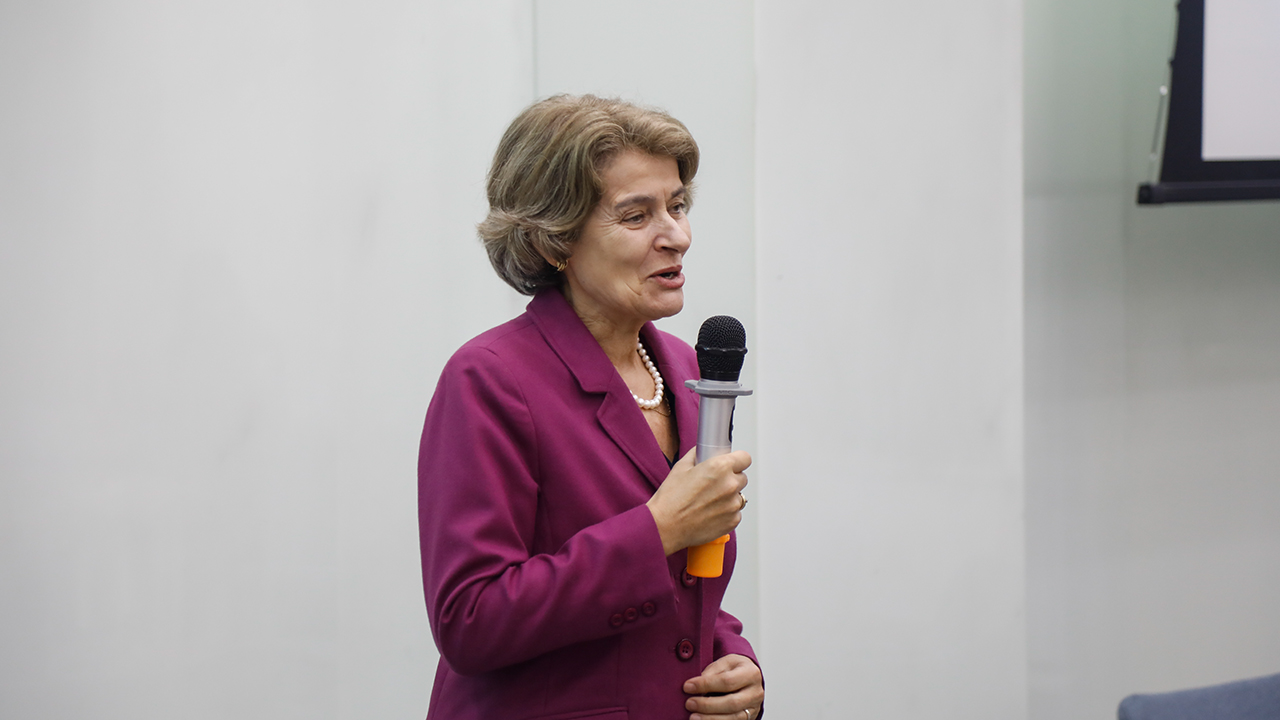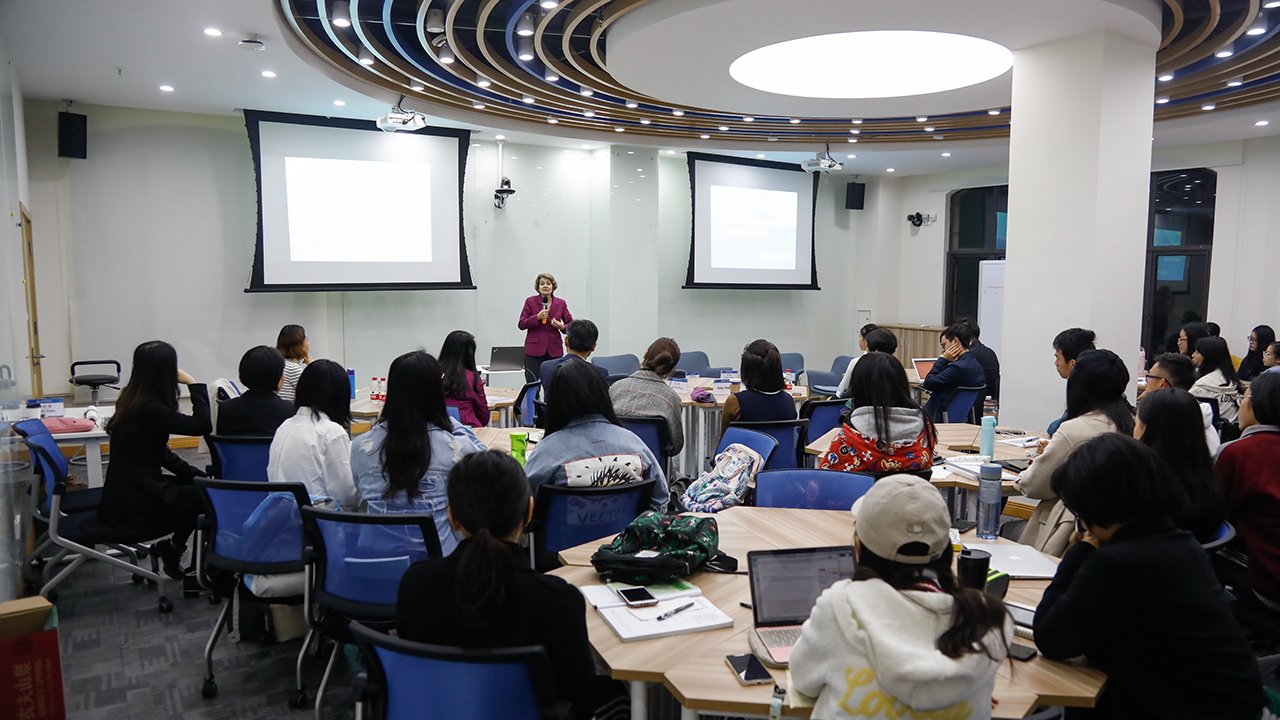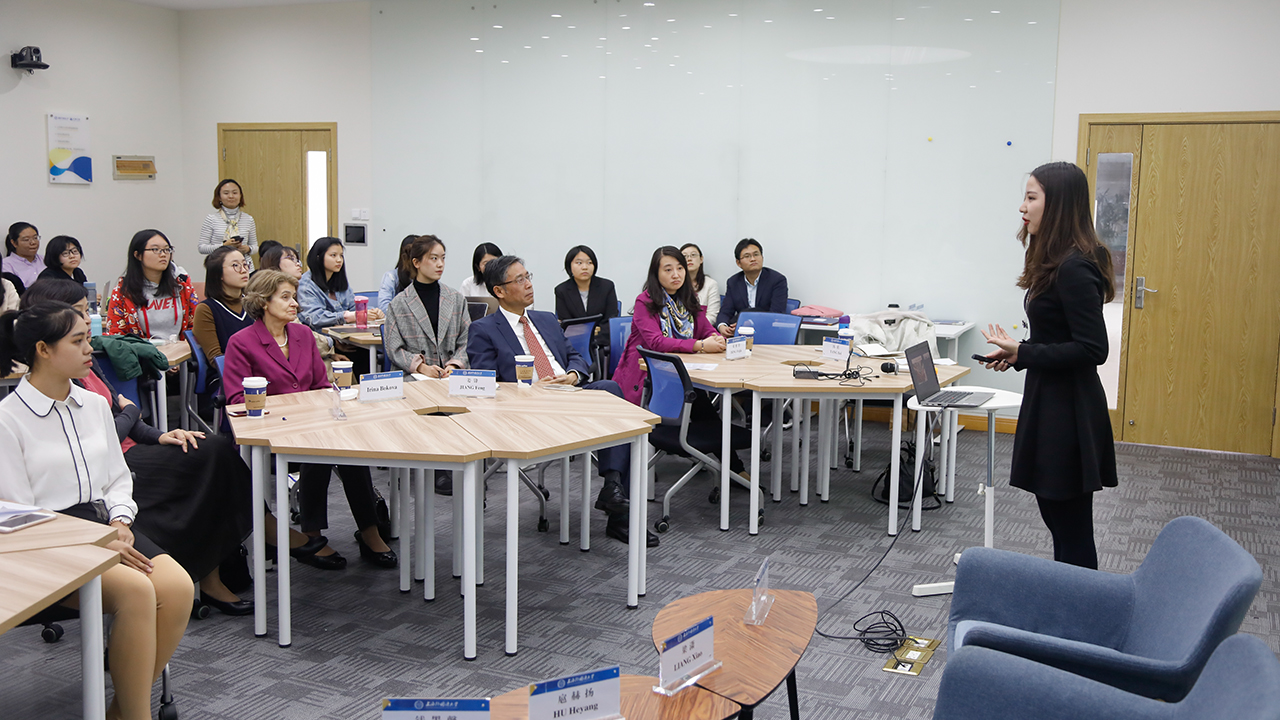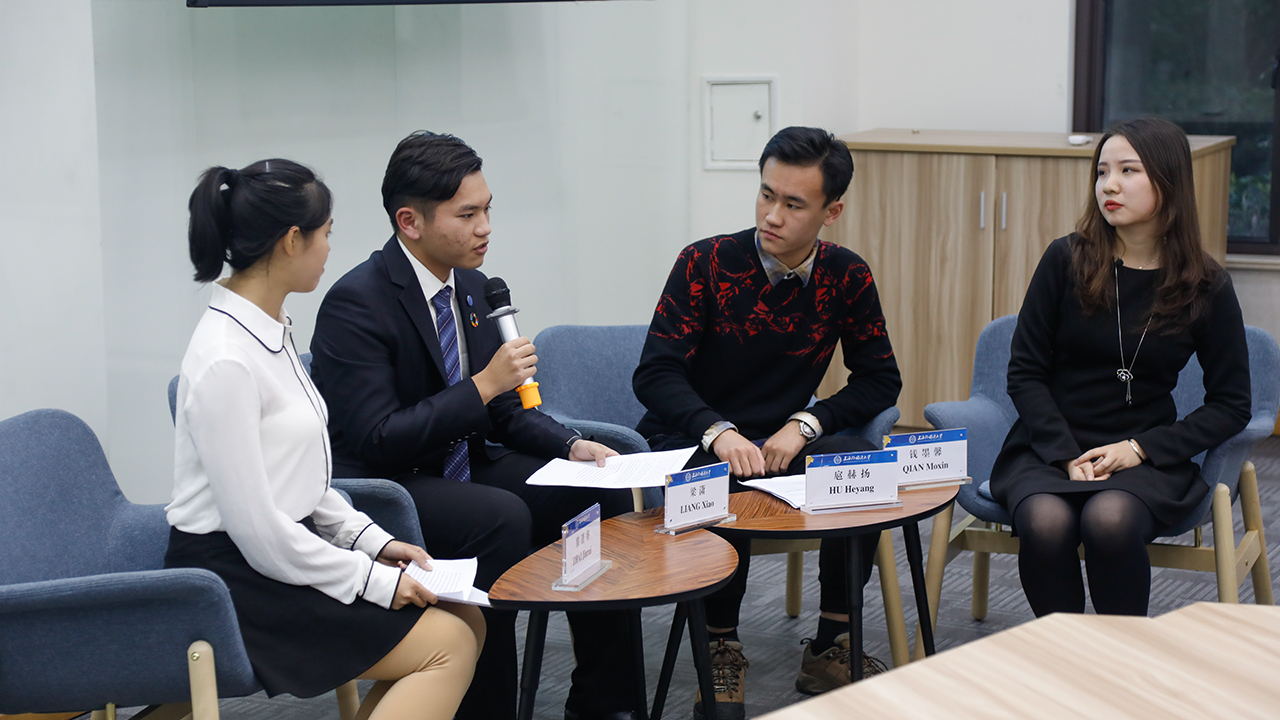I |
rina Bokova, former director-general of UNESCO, visited Honors College of Shanghai International Studies University (SISU) accompanied by Jiang Feng, SISU University Council Chair, and participated in the “Youth Forum on Global Governance” (the Forum) on Nov. 10.
Based on the “Global Governance” course of Honors College, the freshmen and sophomores from experimental classes of multilingual talent cultivation for international organization discussed issues including cross-cultural communication, education and sustainable development, etc on the Forum. Zhang Hongling, director of Office of International Cooperation and Exchange, Deng Weijia, vice dean of Honors College, Tang Bei, associate researcher of School of International Relations and Public Affairs, lecturer of the course also attended the Forum. Qian Moxin, a student fromHonors College, hosted the Forum.
At the beginning of the Forum, Xie Songqiao, who had just won the first prize in The SFLEP Shanghai Intercultural Competence Contest, shared his experience and thoughts. He points out that in cross-cultural communication, there will be various barriers that need Chinese youth to work hard to overcome. Liang xiao expressed his views on education based on his experience of voluntary teaching in summer vacation. He observed that with the popularity of the Internet and the emergence of new education channels such as Moocs, more children in remote areas can receive high-quality education resources. He Tingyi shared her thoughts on human history and civilization from visiting museums around the world.
Qian Moxin, Hu Heyang, Liang Xiao and Zhai Jinrui then discussed issues ranging from barriers and prejudices in the process of intercultural communication to UNESCO’s challenge in the protection of education as a public good in recent years, from sustainable development, environmental protection and climate change to other issues of interest to the students. In this process, students found out that the core problem lies in the unequal distribution of resources. Each country should find its own development mode according to local conditions instead of blindly imitating.
Bokova also shared her thoughts on the above issues. She pointed out that today's world was full of challenges but also full of opportunities. The world is far more divided in culture and other fields than we could imagine. So it requires us to listen to others carefully and show more respect. Today's society is the most educated one in the human history. However, we still know little about the natural world, so we should maintain an optimistic and humble attitude towards the world. She also believed that China would play an important role in the international arena in the future, for China’s cultural soft power and the Belt and Road Initiative could promote win-win situation for all parties in the world. Bokova spoke highly of the discussion among the students and addresses the students as “future colleagues”. She also patiently answered questions from students about women's rights and US’ withdrawal from UNESCO.


